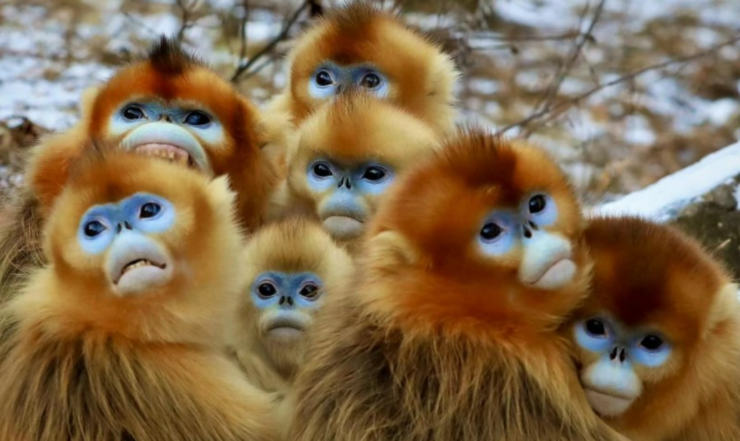Scientists have found answers to how a species’ long-term adaptation to living in an extremely cold climate changes its social evolution.
Scientists have discovered proof for the first time ever that a species’ long-term adaptation to living in a very cold climate has resulted in the evolution of social behaviors like extended maternal care, improved infant survival, and the capacity to live in large complex multilevel societies.
The new study, which was led by scientists from Northwest University in China and a team that included researchers from the University of Bristol (UK) and the University of Western Australia, examined how langurs and odd nosed monkeys, which are members of the Asian colobine family and can be found anywhere from tropical rainforests to snow-capped mountains, adapted over time.
According to University of Bristol report, the researchers chose these species because they display four different types of social organization and serve as a useful model for understanding the many factors that have driven their social evolution from a shared ancestral state to the various systems that exist today.
The scientists discovered that colobine primates living in colder habitats typically live in larger, more complex groups by integrating ecological, geological, fossil, behavioral, and genetic analyses.
They discovered that odd nosed monkeys from extremely cold environments have evolved more effective dopamine and oxytocin hormone pathways that may extend maternal care, resulting in longer breastfeeding durations and an overall improvement in infant survival.
Additionally, it appears that these adaptive modifications have improved interpersonal bonds, enhanced male tolerance, and facilitated the transition from independent, one male, multi female communities to vast, complex, multilevel civilizations.
Dr. Kit Opie, is one of the study’s authors from the Department of Anthropology and Archaeology at the University of Bristol. He said: “Our study identified, for the first time, a genetically regulated adaptation linked to the evolution of social systems in primates.
“This finding offers new insights into the mechanisms that underpin behavioural evolution in primates and could be used to address social evolutionary changes across a wide range of species including humans. In addition we would like to examine how changes in social and mating behaviour in many primate species may be the result of genetic changes due to past environments as well as other social and environmental factors.”
Dr. Cyril Grueter is also an author of the study from the Department of Anatomy, Physiology and Human Biology at the University of Western Australia. He said: “With climate change becoming an hugely important environmental pressure on animals, it is hoped that this study will raise awareness for the need to investigate what course social evolution will take as the prevailing climate changes.”
“Our finding that complex multilevel societies have roots stretching back to climatic events in the distant evolutionary past also has implications for a reconstruction of the human social system which is decidedly multilevel.”
